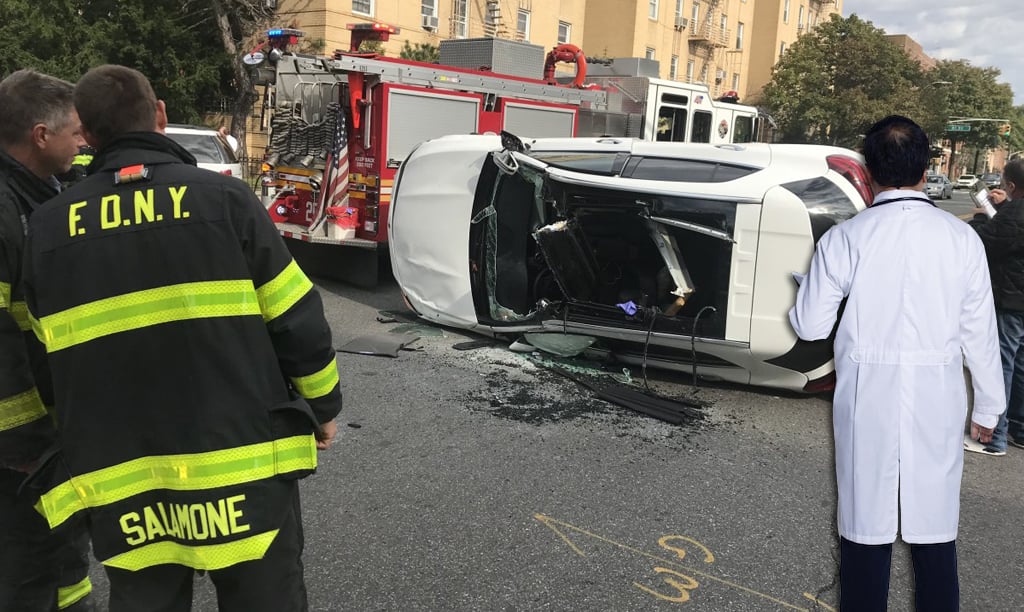- 4 Posts
- 103 Comments
It sounds like they’re praising it in Japan and saying “of course it could never work here, Americans are just genetically predisposed to cars”.
Which public transport? Tokyo Metro is publicly-owned. Some of the JR branches are still publicly-owned. JR was only privatized in the late 80s as an anti-labor move and to deflect from the unpopularity of closing unprofitable rural lines. But of course the government built most of the network, including the first shinkansen lines.

 205·30 days ago
205·30 days agovery funny to see this coming from Reason, a libertarian rag that hates public transit

 17·2 months ago
17·2 months agoWell, the article’s thesis is more that transportation/traffic engineers don’t care. DoTs are set up to get grants and spend money, with a focus on throughput. Very little thought is put into safety, and most “safety” best practices are confusing, outdated, or poorly thought out.

 12·2 months ago
12·2 months agoWell, the article’s thesis is more that transportation/traffic engineers don’t care. DoTs are set up to get grants and spend money, with a focus on throughput. Very little thought is put into safety, and most “safety” best practices are confusing, outdated, or poorly thought out.

 76·2 months ago
76·2 months agoWhat solution is AI going to come up with other than “stop burning fossil fuels”? We already know the solution to climate change. Acting like we don’t is absurd.
I think a good first step in meeting climate goals would be eating Eric Schmidt.
I meant in other countries. Rural France is still conservative, for example. So is rural Japan.
Plenty of places with developed rail networks are still conservative in rural places.

 5·3 months ago
5·3 months agoIt’s Idaho, so I can only assume someone with MAGA brainworms will attempt to roll coal through the middle of it in a giant lifted truck.

 82·3 months ago
82·3 months agoBaseball was a secondary goal in the construction of Dodger Stadium. The primary goal was to get rid of a bunch of brown people who lived too close to downtown for whitey to handle.
When you understand that, the giant parking lot makes tons of sense.

 63·3 months ago
63·3 months agoExcuse the overdramatization, but it feels a lot like Frodo going to the Grey Havens. They did something great and now their reward is to disappear forever and be well taken care of.

 33·4 months ago
33·4 months agoWhen asked if he was sure that Albion couldn’t be copyrighted due to its historical context, he replied: “I don’t know if I’m honest, I don’t really know… I hope so. I mean you would think that the responsible person I should be, I would’ve spent the last six months in lawyers’ offices…”
Bold strategy, Cotton.

 1·4 months ago
1·4 months agoRight. But Caltrain has had multiple full shutdowns over the last couple of years during the catenary installation. If they aren’t able to maintain the tracks with that much shutdown time it’s worrying.

 12·4 months ago
12·4 months agoI was in SF this past week and took Caltrain down to Redwood City and back. I rode one of the express Baby Bullets, which is as fast as the diesel-electrics go. (The electric trains were sitting there at 4th and King, mocking me.) Let me tell you, I do not know how they think they can run HSR on this track in the state that it’s in. This is far and away the bumpiest ride I’ve ever had on Caltrain, and I used to commute on it twice a day for two years. I’m actually concerned about the state of the track. It’s great that they’ve run the wire, but I anticipate strict speed limits if they ever get the high speed rolling stock up from LA.
Tearing down the properties has reduced their local property tax base and also no doubt reduced the values of the properties across the streets as well. It’s creating a downward spiral of local tax revenue while no doubt increasing state maintenance obligations.
Decisions like this are why small towns like this are going broke. They make themselves easier to drive through and tear down the properties that constitute their tax base.
City or state would have had to pay to buy the properties anyway, though. Then the money spent on the widening could easily have been spent to modernize and update (or otherwise improve) the buildings.

 9·4 months ago
9·4 months agoThe issue, to be clear, is not who makes the surveillance cameras. It’s the surveillance cameras being installed in the first place.
Alarmism about Chinese surveillance cameras is missing the forest for the trees.
Except if the side of the truck says “U-Haul” or “Home Depot” people understand you’re not the kind of asshole who buys and drives a fuckoff huge truck every day of the week.



I think battery buses require extra road maintenance because they’re so heavy. They’d be required to use truck routes or their roads would have to be updated to handle those weights.
Also EV charging infrastructure is not nothing.
In general, trolleybuses are probably the best electrification method, but people get mad about catenary.